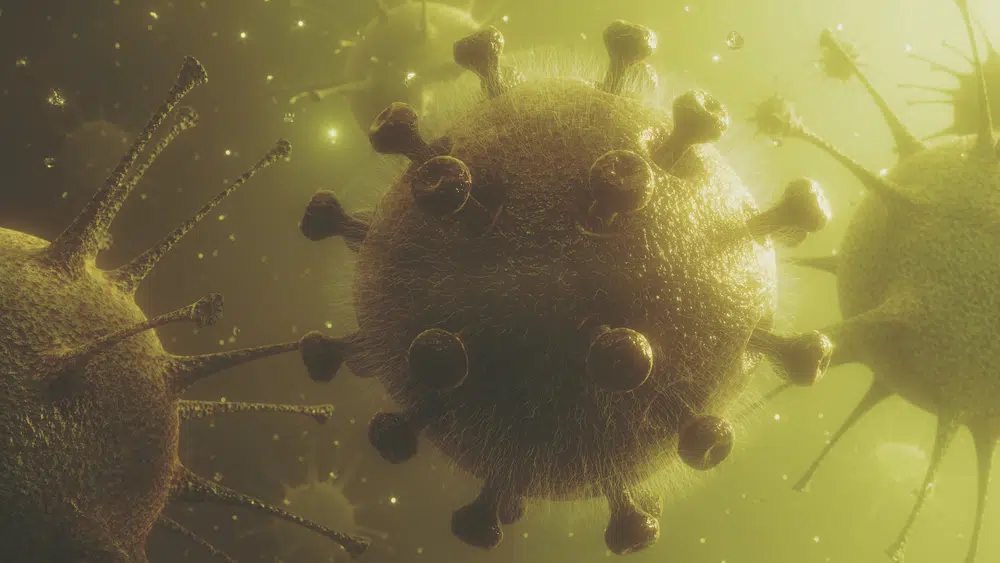If you’ve turned on the news lately, you’ve likely heard a lot about COVID-19 variants, particularly the Delta variant. These variants are essentially mutated versions of the virus that causes COVID-19. Variants are expected, but it can be hard to know what to expect when a new variant appears. So, what do you need to know about the COVID-19 variants?

What Is a Virus Variant?
First, what, exactly, is a variant? WebMD explains that coronaviruses like the one that causes COVID-19 have all their genetic material in something called ribonucleic acid, or RNA. When a virus infects you, it attaches to your cells and makes copies of its RNA. This helps the virus spread. However, if there is a “copying error” during cellular transmission, the virus’s RNA changes ever so slightly. These changes are known as mutations. While the mutation process may sound like something out of a sci-fi novel, mutations are actually a normal part of viral spread. Think of it in terms of the flu: influenza viruses mutate, which is why you need a different flu shot every year.
What Are the Most Prominent COVID-19 Variants?
While the medical community expects virus variants to develop, experts also have to monitor these variants closely to keep them under control. In the case of COVID-19 variants, some of them spread more easily than others. Scientists classify strong variants as “variants of interest” or “variants of concern.” The Centers for Disease Control and Prevention (CDC) are currently monitoring the following COVID-19 variants:
- Alpha: FDA-approved or FDA-authorized vaccines work against the alpha variant, which was first identified in southeast England.
- Beta: While the Beta variant raised some concern in 2020, we know now that FDA-approved or FDA-authorized vaccines work against this variant.
- Gamma: The CDC initially reported that the Gamma variant could infect vaccinated individuals; however, breakthrough infections remain relatively rare.
- Delta: The Delta variant is currently the leading variant driving COVID-19 infections in the United States. Breakthrough infections in vaccinated individuals are still quite rare; however, preliminary evidence suggests that fully vaccinated people can spread the virus caused by the Delta variant.
- Other variants: You may have heard some discussion of other variants, including the lambda variant. One study did suggest that lambda could evade the COVID-19 vaccine; however, that study has not yet been peer-reviewed. The World Health Organization is also monitoring the mu variant for the same reason.
Protecting Yourself from COVID-19 Variants
By reducing a virus’s spread, we reduce its opportunity to mutate. As we know, there are several proven ways to reduce the spread of COVID-19: wearing masks, following the CDC’s guidelines for hand-washing and social distancing and, perhaps most importantly, getting vaccinated. Vaccination is safe and effective, and it reduces your chance of severe infection from all current virus variants.
_____
The virus that causes COVID-19 is evolving every day. Fortunately, there are several proven ways to increase your protection against COVID-19 variants, the most important of which is getting vaccinated. With widespread community vaccination, mask-wearing, and other COVID safety practices, we can reduce the spread of COVID and, therefore, reduce the development of potentially severe variants.
Have you ever thought about participating in a clinical research study? You could be a part of history! QPS Missouri is looking for new participants. Since opening its doors in 1994, QPS Missouri has conducted over 1,000 FDA-regulated studies, paying out over $35 million to local participants. Your local participation could have a global impact, as QPS is an international leader in contract research with facilities in North America, Europe, and Asia. Our mission is to accelerate the development of drugs worldwide by enabling breakthroughs in pharmaceutical innovation. This includes several pediatric studies across several age ranges. If you would like to join us in this crucial healthcare mission, consider applying for a clinical research study.
To get started, you simply need to fill out an online application. After that, within 48 business hours, a recruiting coordinator will contact you for your pre-screening assessment. To learn more, please visit the QPS Missouri website, review the study participation process, or check out our list of frequently asked questions.
